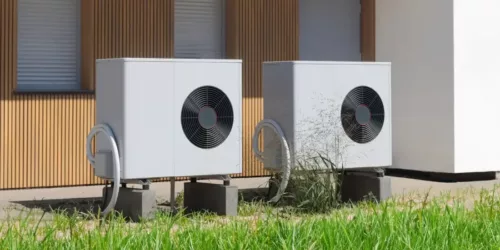Different types of heat pumps: what’s available?
More and more people are showing an interest in investing in heat pumps. Heat pumps are devices that are used to transfer heat from one location to another. One example is to move heat from the soil inside your garden to your internal hot water system. Heat pumps do need a modest amount of electricity to achieve this, but they can offer efficiency rates of up to 600%. This is because they produce much more heat than the energy they consume. Find out more about heat pump types right here.
There are many benefits attached to investing in heat pump types, and you may even be able to receive payments from the UK government if you have one installed. Your heat pump type may also help you to reduce your fuel bills substantially.
Your main options when it comes to heat pumps are:
- Ground source heat pumps
- Air source heat pumps
- Water source heat pumps
The UK has a Net Zero target which it wants to reach by 2050. It’s expected that there will be around 19 million new heat pump installations in homes in the UK by this point, with heat pump types being handed a pivotal role in helping the country reach its targets. In April 2022, VAT on energy-efficient solutions like heat pumps was scrapped. The International Energy Agency says no new gas boilers should be installed after 2025 if the Government’s targets are to be reached.
Interested in heat pumps? Use our quote comparison tool to find out how much you'd pay. It only takes a minute.
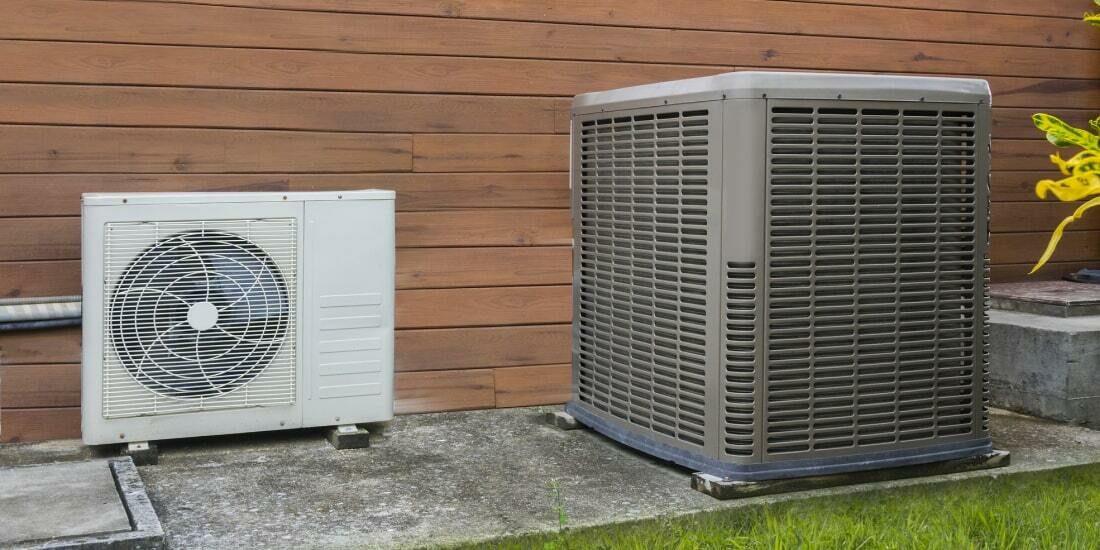
What's On This Page?
Click the links below and head straight to a specific section of the article.
What to consider when looking for heat pumps
There are many things you need to consider if you have been thinking about adding a heat pump to your property but aren’t quite sure which type of solution is right for you. These include whether you need heating and domestic hot water from your heat pump. Other factors that might influence your decision include the size of your garden, the supplier of your heat pump and how much you have to invest in your heat pump. The three main options available to you are air source heat pumps, ground source heat pumps and water source heat pumps.
If you want to extract heat from your soil, you may need to dig your garden up so pipes can be laid down. If you want to get it from the air, you will need to create space for a fan, which can emit a modest amount of noise. You may be able to invest in a water source heat pump if you have a body of water that you can use on or near your property.
Ground source heat pumps
In the vast majority of cases, ground source heat pump types are used to heat water. There are many different types of ground source heat pumps on the market. These include closed-loop systems, vertical systems and horizontal systems. An open-loop system pumps groundwater from underneath the soil, extracts heat from it then pumps it back. Closed-loop ground source heat pumps have become much more popular. These work by sending an antifreeze liquid via a closed plastic polymer tubing inside the oil.
A vertical ground source heat pump type system requires several deep holes to be drilled into the ground. The liquid reaches a higher temperature the lower it goes and comes back via an exit hole. It is then used to heat a refrigerant that remains in the house in another system. Horizontal systems cost less than vertical ones due to the way they aren’t as complicated. Ground is dug out slightly below the frostline when a horizontal system is installed. Coiled pipes are laid into the ground to make spirals, with the liquid travelling through the system to heat the refrigerant in the other pipe system.
Air source heat pumps
Air source heat pump types use vapour compression to make heat. They take heat from the outside to warm your home. Components used to change the refrigerant from a liquid to gas include the compressor, condenser, expansion valve and evaporator. Refrigerants absorb heat from the outside air as their pass through your system. The compressor increases the pressure in order to boost the heat. The condenser is used to transfer the heat to your heating and hot water systems. Following this the liquid moves through the expansion valve, with the release of pressure causing the temperature to drop. Once the liquid has cooled down, it is ready to absorb further heat from the air so the process can be repeated. You can use an air source heat pump to source hot water, heat your radiators and power your underfloor heating system.
Types of air source heat pumps
Water source heat pump types aren’t commonly seen in the UK due to fact that the vast majority of people don’t have a substantial body of water near their homes. These come in the form of open-loop and closed-loop systems. In an open-loop system (which could be based around a well or pond), the water from your body of water is pumped through pipes. Once the heat of the water has circulated through your system and heat has been absorbed, the water is sent back to the pond or well.
If you live near a large body of water, you may be able to invest in a closed-loop system. You’ll need to make sure the water is a minimum of eight feet deep to prevent freezing. In this kind of system, a liquid is sent through a pipe system in the water. This system takes the heat from the water and moves it to the compressor to make useable heat.
The graph below shows the total number of heat pumps that have been installed in the UK, according to MCS. Of the 215,393 installed in total, the majority have been air source.
Advantages and disadvantages of heat pumps
All heat pump types come with their own series of pros and cons. It’s important to be aware of what these are before you go ahead and proceed with your investment. One of the main reasons so many people are opting for heat pumps is that their compressors use much less energy than boilers. This means they can help you reduce the cost of heating your home dramatically. If you are located in England or Wales, you may be able to apply for up to £7,500 to help fund your air or ground source heat pump.
Another big benefit of installing a heat pump is that these systems generally require little maintenance. There are annual checks that you can carry out yourself, and you’re advised to have your system inspected by a certified professional every three to five years. Heat pump types are designed to last for up to 15 years, although some of the costlier and more complex systems on the market can last for a maximum 50 years. Some heat pumps can even provide the opposite of heat collection, enabling you to keep your home cool in the summer months. Using a heat pump can also mean ending your reliance on oil tanks and gas pipes, which can make your property safer.
As with most things in life, there are disadvantages that you also need to think about when it comes to heat pump types. The initial costs can be off-putting for many, even if you stand to get your money back in the long run thanks to the reduced energy costs delivered by heat pumps. Some heat pumps are rather difficult to install, and the nature of your property may mean it’s not possible to get the solution you’re most interested in. Heat pumps tend to be more efficient when you’re using them with underfloor heating and large radiators. You may need to spend a considerable sum if you have a less modern radiator system and need to replace your heat emitters.
Conclusion
It’s no surprise to see so many home and business owners installing heat pumps. These modern solutions can help you make substantial reductions in your heating bills whilst enabling you to make a better contribution to the world around you. Another reason why so many people are considering installing heat pumps on their properties is that they can get a great deal of financial help towards the costs as the Government continues its move towards net zero. It’s likely that this financial assistance may be ended or scaled back in the coming years, so it’s a good idea to act soon if you do need this kind of support.
More than 17 million homes in the UK are still using gas boilers for heating. This means they are emitting thousands of tonnes of carbon each year, and this is a major contributor to climate change. Domestic heating is responsible for around 14% of the emissions currently produced in the UK each year. This means it could make it very hard for the country to reach carbon neutrality by 2050 unless more people move towards greener methods of heating their homes. Heat pumps give you the opportunity to move towards a more convenient, eco-friendly and reliable solution.
At Eco Quote Today, we are here to help you reduce your fuel bills and reduce your carbon footprint at the same time. We are a leading source for valuable advice and free quotes on green energy solutions and incentives. Find out more about eco-friendly boilers, solar panels, heat pumps, windows and doors, EV charging and insulation.
Related articles
View all Heat Pump articles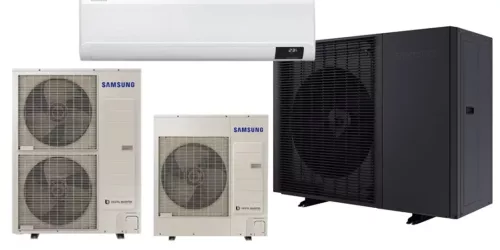
Samsung Air Source Heat Pumps: Overview and Costs
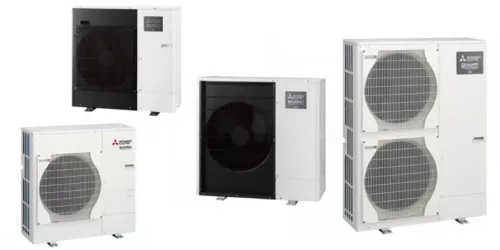
Mitsubishi Air Source Heat Pumps: Overview and Costs
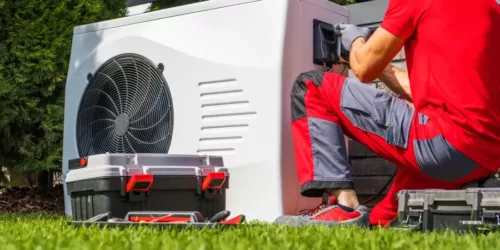
The Cost of an Air Source Heat Pump Service
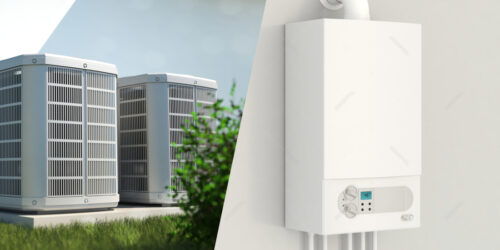
Heat Pump vs Gas Boiler - What's Better?
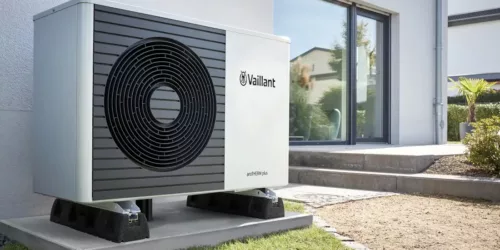
The Ultimate Guide to Vaillant Heat Pumps
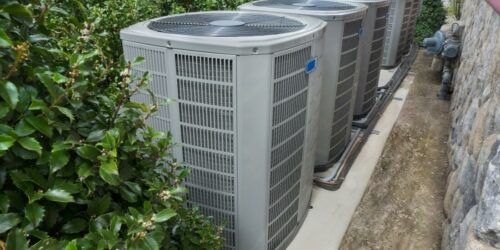
How Do Air Source Heat Pumps Work?
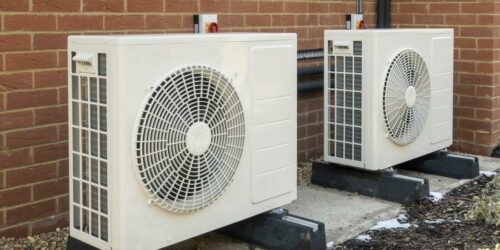
Heat Pumps: Should You Get One?
